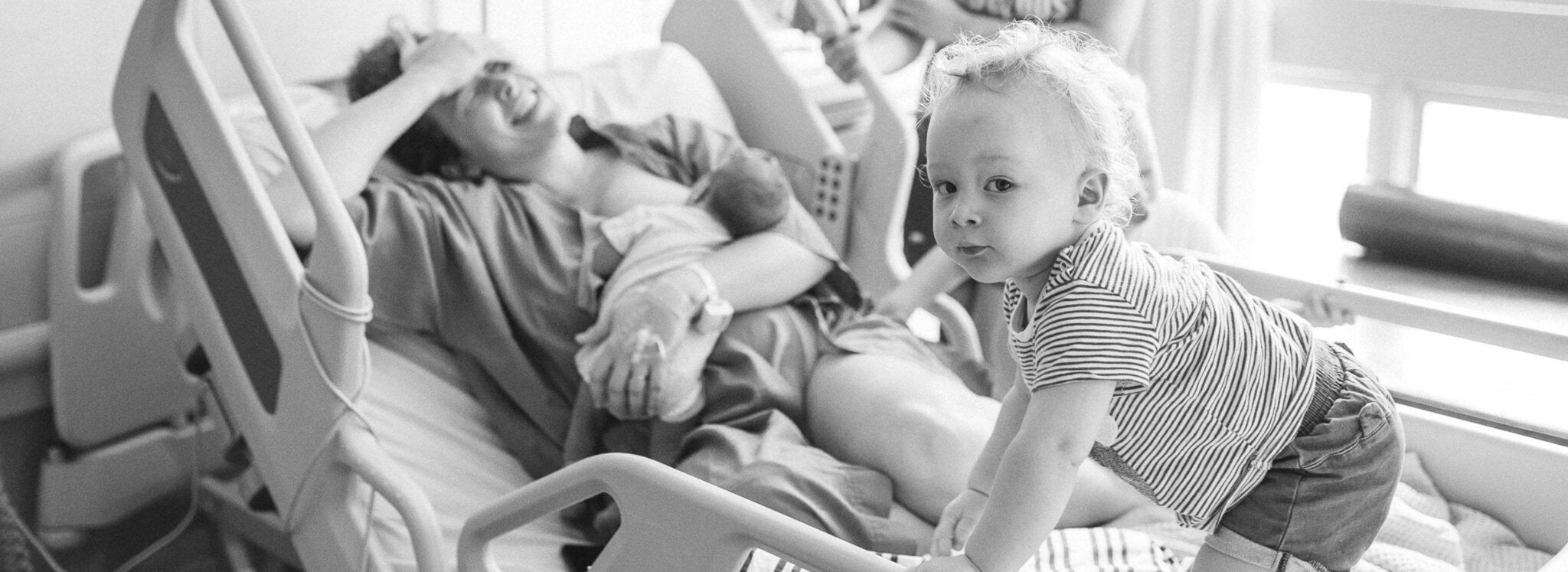I love remembering how I felt when we found out we were expecting. I’d moved to Singapore for work the year before, and without any immediate plans to get pregnant, had gone for a regular pap smear. The doctor asked me if I’d had an internal ultrasound before (this was code for: how much can I pad the bill?), which I hadn’t, so she obliged.
She’s standing there, looking at the ultrasound image and she says, nonchalantly, “Do you know you have a bicornuate uterus? It means you can’t have kids.” I don’t remember what happened in the haze of the next hour but, somehow, I paid and took myself back to the office, where my husband worked too. I do remember standing in the far corner of the lunch room trying to tell him what she’d told me. We may not have been trying right then, but we’d talked about it. We wanted a whole brood of kids; maybe even five. Our whole world keeled over.
The next six months were bleak. The second and third opinions had agreed with the first doctor - albeit in much kinder and gentler ways - but the message never wavered: if you try for ten years, you may get lucky. We talked about adoption. We talked about surrogacy. We talked about a lot of things.
I got the flu, but when it didn’t go away, I went to the GP and he did a bunch of tests. I was sitting on my couch, watching crappy TV and he called back with the test results: I was five weeks pregnant (and I guess I had some other kind of flu thing as well, but I honestly can’t remember anything else he said on the call). The feelings I had for the next seven months were amazing. Excitement (so excited I could barely sleep), nervousness, anxiety, and more excitement again. I had never felt that heady cocktail of emotions before, and even though I’ve had more babies since then, I’ve not felt it again.
There is a certain magic surrounding your first baby and it’s a gift.
If I think back to my expectation of motherhood during that first pregnancy, it was unrealistic - warped by my lack of exposure to the gritty reality of motherhood and child rearing, and compounded by my refusal to heed ‘outdated’ advice from well-meaning relatives. This expectation made the first six months of my son’s life that much harder for me. I was expecting the best days of my life - and I got them - but I should’ve also been expecting the worst. I had tethered my identity to an unattainable notion of what I believed motherhood to be, and when that idealistic facade was shattered - as it certainly was, over and over again - I questioned my entire identity and self worth.
If I could have a do-over, I’m sensible enough to admit that I would still be just as stubborn and advice-phobic. But what would really have made a big difference, would be to know where to go (or even to know that there was somewhere to go) during the hard times. I didn’t know that I should’ve seen a women’s health physio six weeks postpartum or that there were lactation consultants who would’ve happily come to my house. I didn’t know that a good osteopath can help with the baby’s reflux or that my Australian car seat wasn’t compatible with Singapore taxis.
What I hope this book will offer is help with all the questions and doubts; to provide you with the knowledge that there are people and organisations ready and waiting to help you. Even after three babies and two miscarriages, I’m not an expert in pregnancy, childbirth or newborns. But these experts exist, they’re in Singapore, and now they’re in this book.
In the following posts, you will find chapters on everything from medical professionals to car seat engineers (spoiler alert: that’s me, nowadays). Each chapter starts with a letter - to you - from one of the specialists, followed by a directory of the most-recommended specialists in that field. Rounding out each chapter is another letter written by one of my dear friends. This letter is written from a real mother, back in time to her younger self; to when she was expecting her first child.These letters are heartfelt reflections from mothers who had a really hard time when their babies were born; mothers who thrived in their new roles; and mothers who survived. This book is not here to preach to you, but just to be with you. By offering these intimate, honest and raw letters from real mothers, it is my sincere hope that you may identify with some of them, and not just absorb some of the advice they wish they’d received back then, but also settle into the knowledge that you are not alone in this. It takes a village to raise a child and your village is right here, ready when you are.
On that note, welcome to the (parent) ‘hood! It’s loud, it’s messy, but you’ll never want to leave.



Share:
Does prenatal yoga really help?